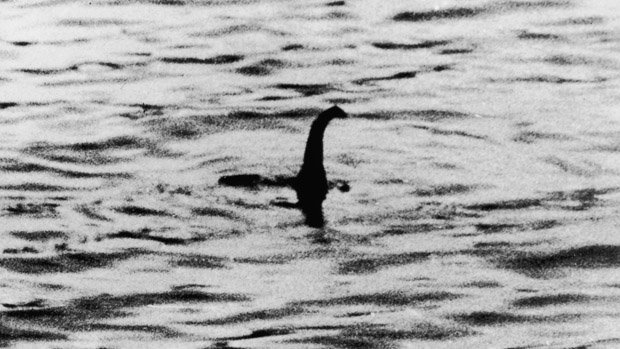Why everyone’s talking about the Loch Ness monster
Scientists testing the Scottish loch say it could contain a giant … eel

A free daily email with the biggest news stories of the day – and the best features from TheWeek.com
You are now subscribed
Your newsletter sign-up was successful
Scientists think the Loch Ness monster could be a giant eel after searching for Nessie DNA in the Scottish lake.
A team led by Professor Neil Gemmell, a geneticist from the University of Otago in New Zealand, took hundreds of samples from the Highland loch to establish what forms of life could be found in the water, says Metro.
And while the search produced “absolutely no evidence” of a reptilian monster, eel DNA was discovered at every single sample site.
The Week
Escape your echo chamber. Get the facts behind the news, plus analysis from multiple perspectives.

Sign up for The Week's Free Newsletters
From our morning news briefing to a weekly Good News Newsletter, get the best of The Week delivered directly to your inbox.
From our morning news briefing to a weekly Good News Newsletter, get the best of The Week delivered directly to your inbox.
“The sheer volume was a bit of a surprise,” said Gemmell. “We don’t know if the DNA is gigantic or just many small eels.
“We can’t discount the possibility that what people see and believe is the Loch Ness monster might be a giant eel.”
However, he admitted that the body of water was so large that nothing could be ruled out.
“There may well be a Loch Ness monster, we don’t know, we didn’t find it,” he said.
A free daily email with the biggest news stories of the day – and the best features from TheWeek.com
What’s the evidence for a giant eel?
Gemmell said a video taken in 2007, which shows a four-metre, torpedo-like shape seemingly swimming on the loch’s surface, supports the idea that it could be home to a giant eel, fish or marine mammal.
“As a geneticist I think about mutations and natural variation a lot, and while an eel that big would be well outside the normal range, it seems not impossible that something could grow to such unusual size,” said Gemmell.
What about a reptilian monster?
Unfortunately for Nessie hunters, the researchers found “no evidence of reptilian sequences in our samples.
“We can be fairly sure there is not a giant scaly reptile swimming in Loch Ness,” said Professor Gemmell.
Researchers had also been on the look-out for signs of giant catfish, sharks or sturgeon as possible explanations for sightings of a monster in the lake - but found nothing.
And the common theory that there could be a Jurassic-age reptile such as a plesiosaur in the loch was shot down by the professor. He said there was no evidence “remotely related” to the idea.
“So, sorry, I don’t think the plesiosaur idea holds up,” he said.
What was the point of the search?
Scientists were trying out technology that can search for environmental DNA.
“Creatures in the water leave tiny fragments of DNA through their skin, scales, feathers, fur, faeces and urine, which can be used to identify them,” says Metro.
The technology has grown in popularity in the past five years, but it’s the first time that it has been used to sweep the Scottish lake, says Stuff NZ.
“Monster or no monster, environmental DNA - the technology we’re using - is a very exciting way to assess living species in a particular environment,” said Professor Gemmell.